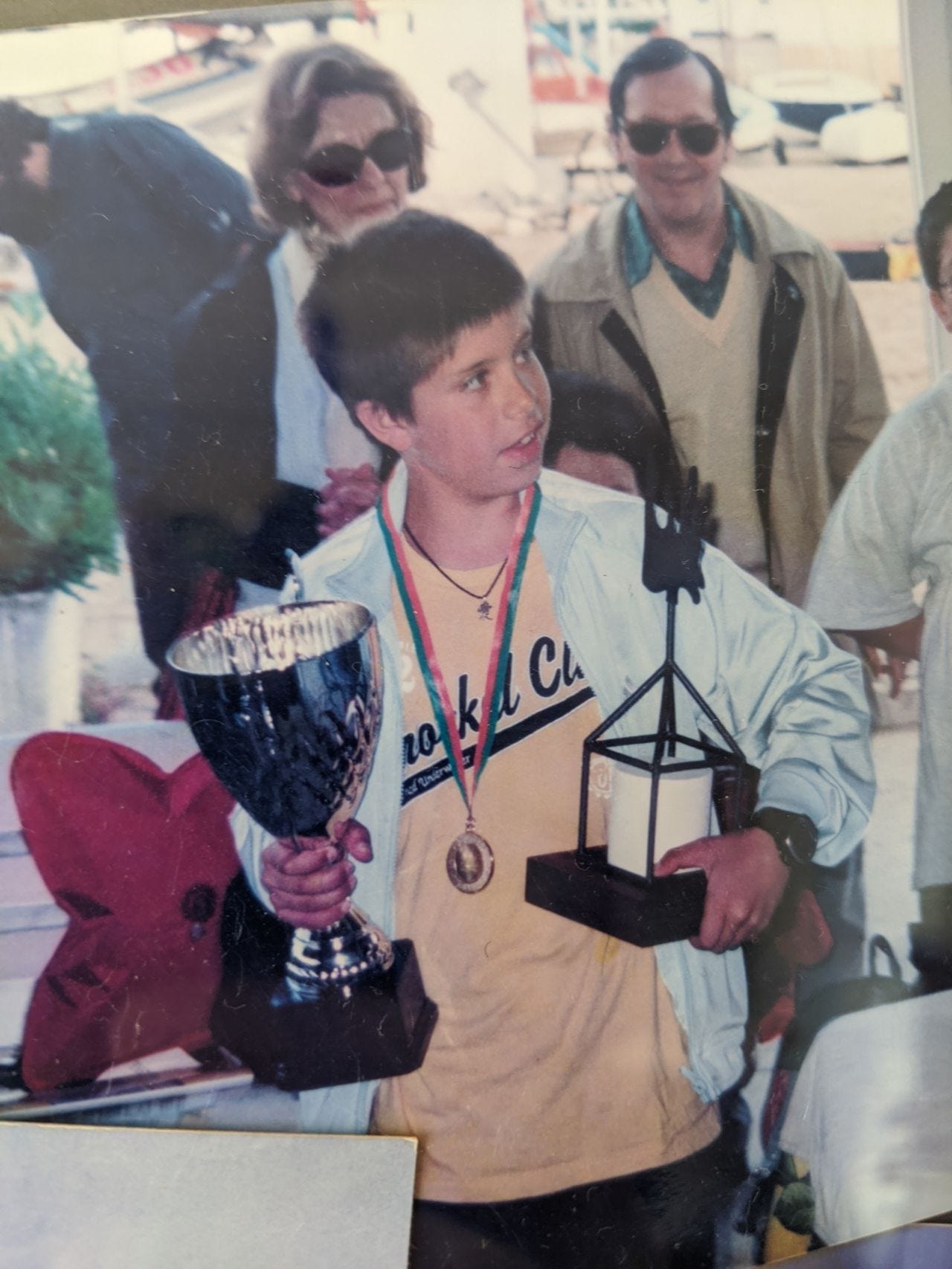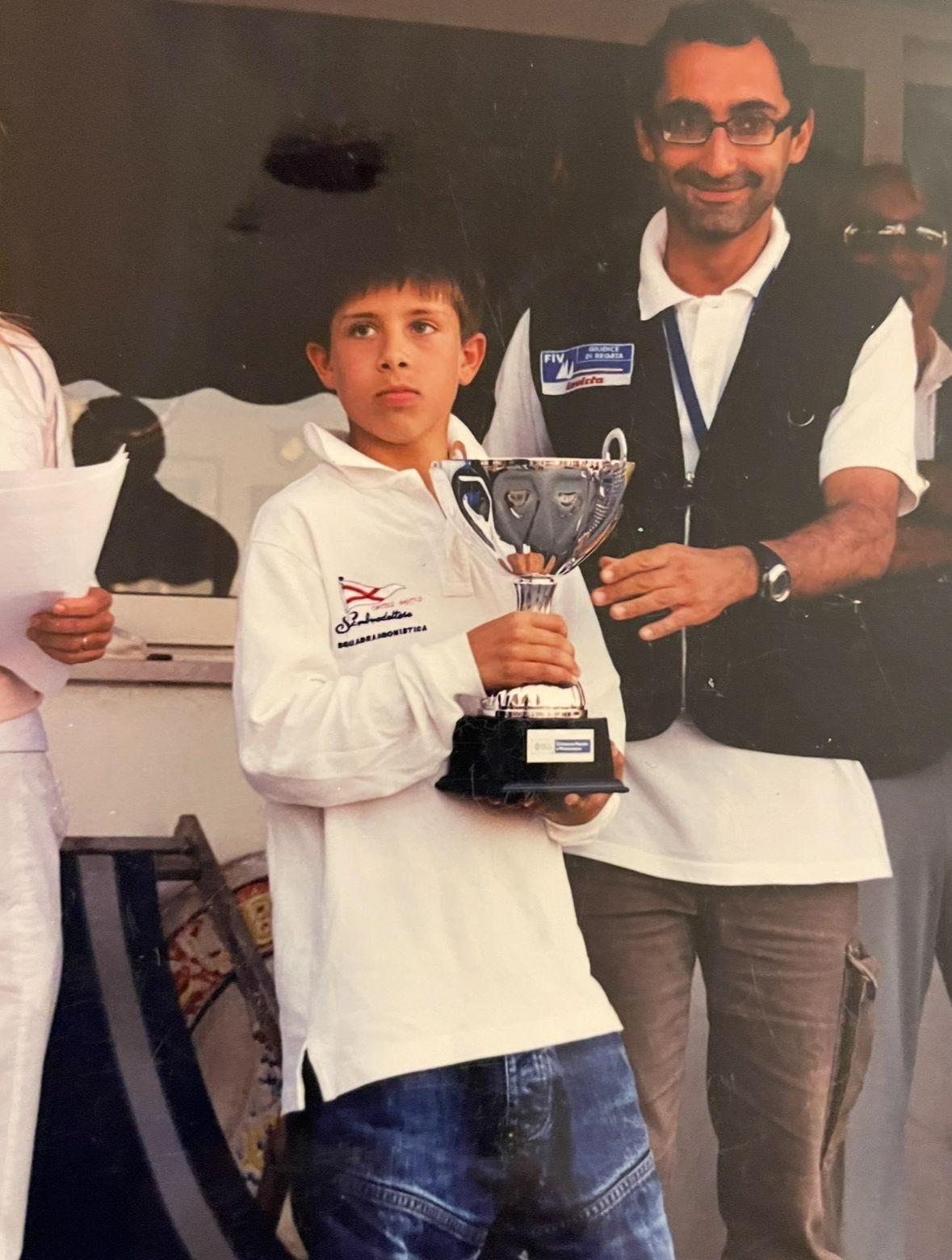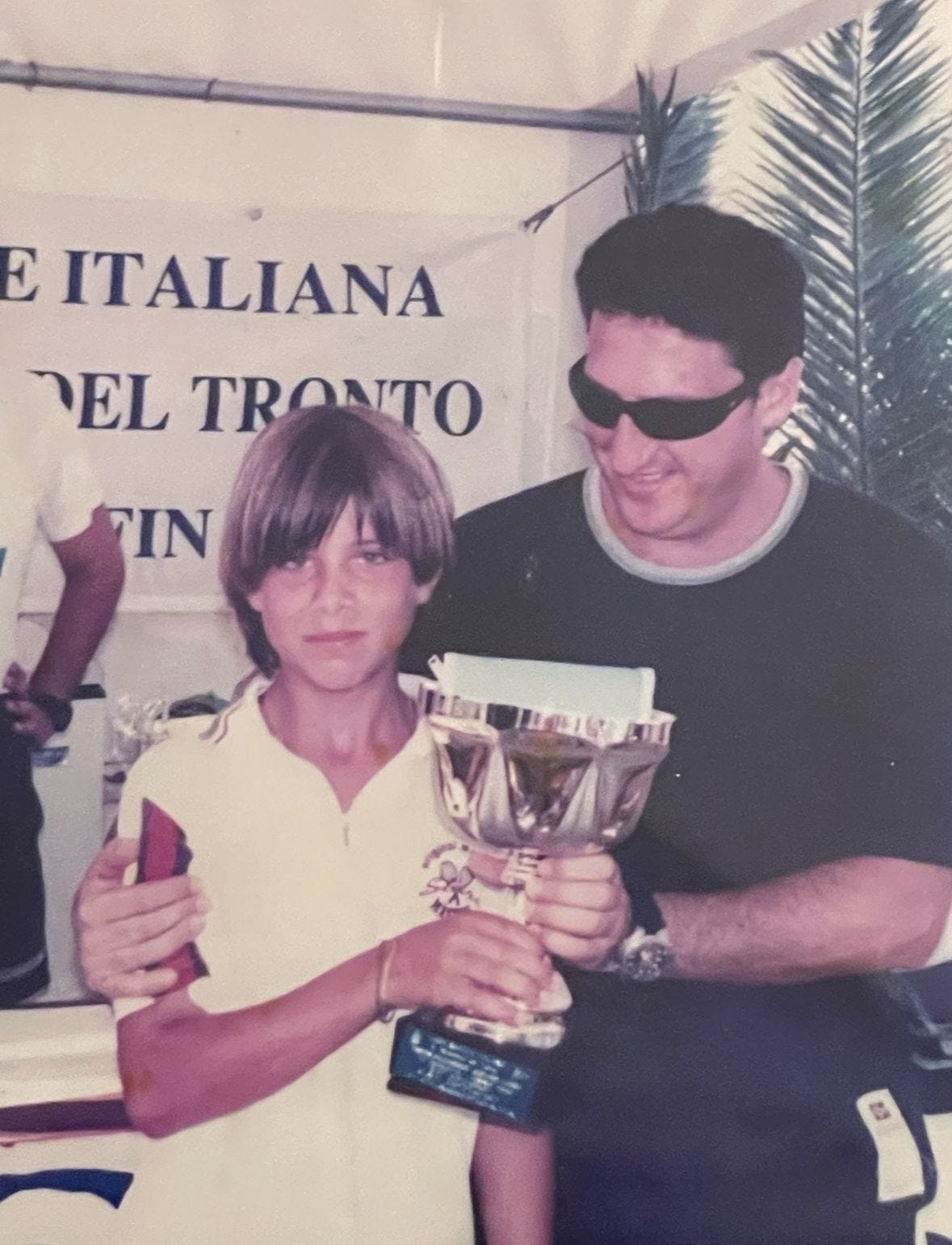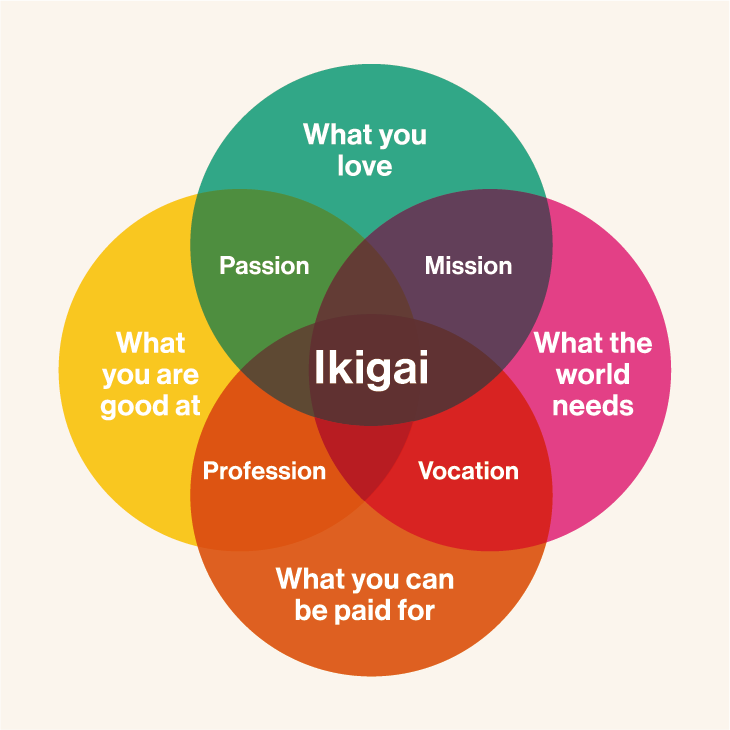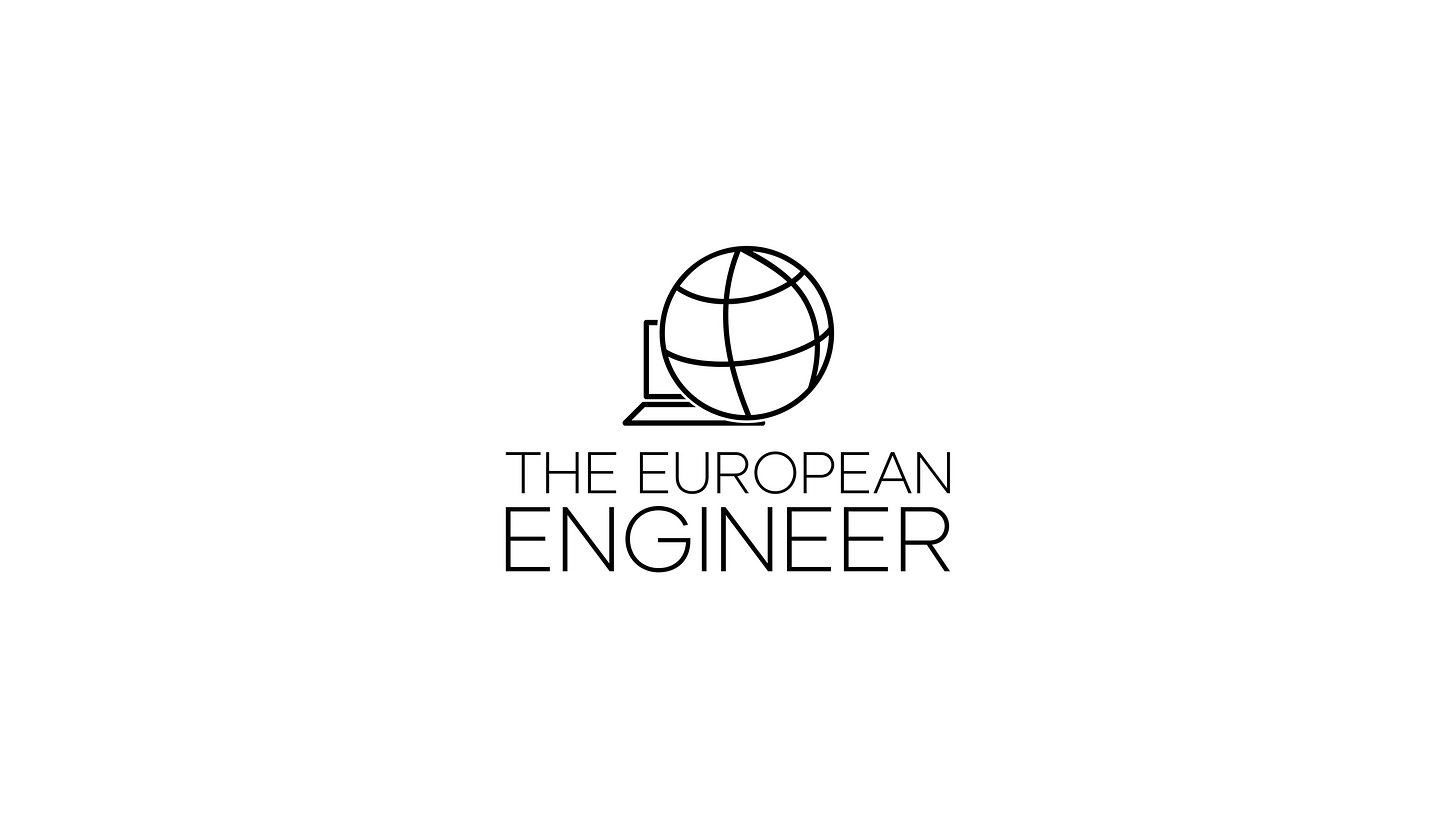How to find your path
My 2 cents on "Ikigai'
Before we start, if you haven’t already, check out this article about the City Ranking and the Happiness Ranking I recently added to ETT - also, make sure to contribute if you haven’t already!
1. The value of winning
I gave my childhood to competitive sailing, despite not being in love with sailing itself.
Quick timeline:
Age 6: Summer sailing course → joined the local race team
Age 8: 10th at the Junior “Lake Garda Meeting,” a world-level kids’ regatta
8-11: Consistent top finishes in Italy’s youth rankings
12-14: Moved to the Laser 4.7 class, raced across Europe, hit Italy’s top spots again
Age 15: choose Rio 2016 track or focus on school → picked school
Why did I spend so much time and energy into it?
I liked sailing, but I loved winning:
trophies
respect
the feeling of improvement
seeing the hard work pay off
That was enough to get me to every winter training, gym session, every regatta and trip without parents or coach.
I learnt that wins can fuel motivation, similarly to passion.
If you’re good at something, progress is visible, and that progress keeps you in the game.
A friend of mine once told me: “Everything can be interesting, if you do it well enough”.
Obviously, that’s not just true for sports.
In your career, if you notice that something comes easier to you than to others, you should keep an eye on it.
Note - 0-sum games vs sports as a “dopamine gym”
I’m generally somewhat “against competition”, and that’s also part of why I didn’t want to pursue a career in sports: it felt like a 0-sum game that wasn’t really useful to anyone; yet I think it was a good gym on “getting better at something while enjoying the process”.
2. The value of passion and curiosity
Curiosity, not early coding, got me into Big Tech 👇
I was never a coding or computer genius.
Got into coding fairly late in life: around 20-23 years old.
Yet, when I saw how computer science combined my love for abstract maths with real-world applications, I got hooked.
Curiosity can be an amazing source of energy.
In the case of coding and computer science, it allowed me to go from a late-starter with no edge, to landing roles in Big Tech and Switzerland.
I worked hard. And it was certainly a grind.
But passion and curiosity made the hard work possible.
In this sense, I think the cliche advice of “doing what you love” can be good:
If you love something, you can do a lot of it, which makes it easier to excel.
And when you get in the top 1% of anything, you can almost always make a living of it.
So, if something pulls you and the work doesn’t feel like work, while not being the only thing to look at, it’s certainly something worth paying attention to.
Note - how not following your passions can be stupid
At some point during my BSc, when I was 21-22, I seriously considered quitting my degree and starting one in cinema and movie-making.
I had been interested in the topic for some years, my high school thesis already was on a niche German director (Werner Herzog), I spent the first 2/3 years of my BSc watching 1 to 3 movies per day and reading books on it, I had some friends in the industry and I was not less knowledgeable than them.
But, I chickened away from it, because it was seen as a less reliable career path than engineering, and I needed money.
Stupid move.
The way things turned out in the past decade: if you’re a top 1% movie/video maker, you’re absolutely top tier talent - order of magnitudes higher than a good dev.
I would have definitely performed better at that, than in my studies (since I didn’t like my degree at all), and I would, as a consequence, done better in that field than in mine.
Pivoting into computer science and programming (from my BSc in automation/robotics engineering) was a more conservative move, still in the right direction. I’m happy I at least did that!
3. Skills + Passion + Market = 🔥
Passion + skill is a powerful mix.
Two quick examples from my life:
Sailing – 9 years of junior racing. I liked the sea, but winning kept me hooked and ranked.
Tech jobs – No childhood coding, but late night study and curiosity took me to Big Tech and Switzerland.
Some time ago, someone asked me how to get more views on his LinkedIn posts.
These were the tips I gave him:
Write what you wish you had found
• Share lessons you learned the hard wayStick with it for a season
• Post 10-100 times over a few months
• Your writing and feel for the platform will improveLearn from feedback
• Keep what works
• Drop what doesn’t resonateReview your progress
4a. If the numbers look good, keep going
4b. If they don’t, reassess: maybe there’s a better use of your time and energy
Over the past 2 years, I ran this test on Linkedin and on this newsletter for my content.
This happened:
Readers found the posts useful → likes, comments, followers, sales
I enjoy researching, writing, and building → energy stays high
That’s why I’m putting more hours into content and small products, even if it pauses a high-pay tech career.
Good things tend to happen when what you enjoy meets what you’re good at.
Note - On Ikigai
What I talked about here kinda resembles what the Japanese concept of “Ikigai” describes:
One thing I’d argue for 2025 and beyond is that you can be paid for anything if you’re very good at it.
So, in the end, it can be the intersection of just two things: what you like and what you’re good at.
I think that’s enough.
Then, it’s just about how to find the right placement and market for it. Some might be easier and more straightforward, others more challenging.
But, as I already mentioned:
If you’re world-class at something
And you advertise it online
You should receive some kind of attention
I have right now a guy in my coaching program who’s really skilled in a very niche area of tech, PhD and everything, AND is also good at advertising/writing about his stuff.
It’s turning out quite easy for him to get attention for high-paid and remote-friendly jobs and career opportunities (despite his field not being “hot”).
This article is brought to you by:
Euro Top Tech - The #1 resource for landing Top-Paying Tech roles in Europe:
2000+ top paying tech jobs in Europe from big tech companies, HFT firms and high-paying scale-ups.
1000+ jobs from 100+ fully-remote companies paying $100-600k per year.
Private guides - like this one - to help you land these jobs.
Six Figure Euro Engineer - Maximise your chances to boost your Tech Career in Europe, reducing time to success:
Work 1:1 with me (Nicola Amadio, author of this newsletter), and join the other engineers who were able to 10x their tech career in the past few months!


